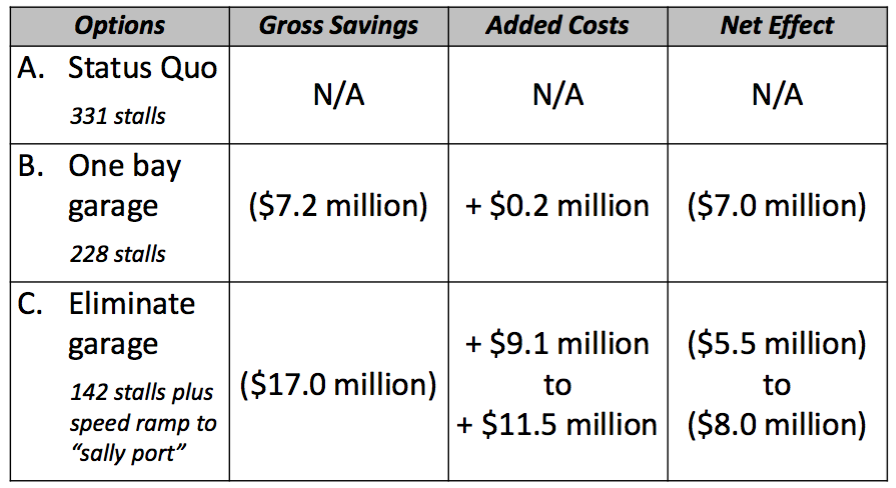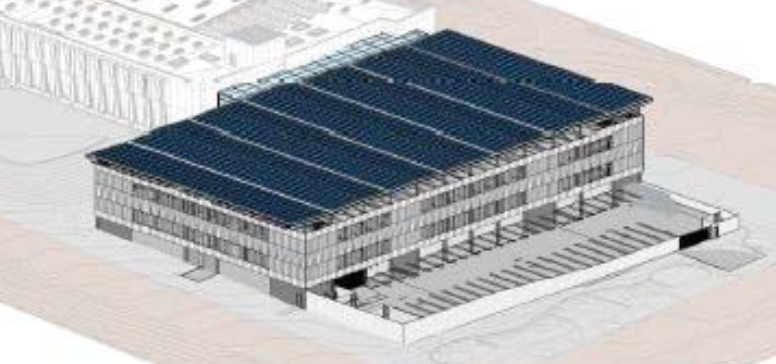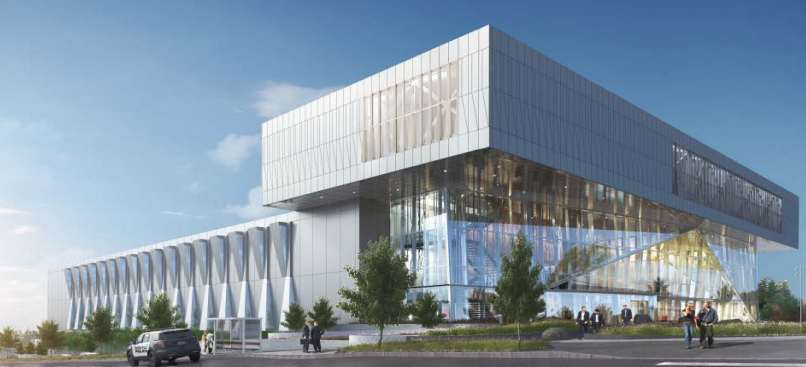On Wednesday, the Seattle City Council’s Gender Equity, Safe Communities, and New Americans Committee heard from Seattle Police Department (SPD) and staff from other departments involved in the planning process for the North Precinct’s new building at N 130th St and Aurora Ave N.
Councilmember Mike O’Brien, not a member of that committee, ended up being the most vocal during it, suggesting that SPD had been acting like they had a “blank check”. The project had been originally estimated at around $90 million during the McGinn Administration, but the Mayor’s Office is now calling that figure a “placeholder”.
The biggest football in the $160 million project is the $17 million parking garage. The size of the garage has been scaled back from even earlier plans, with a surface parking lot on part of the property, meaning a total of 331 stalls. Two alternatives were presented to replace the full-cost parking garage: half a garage and no garage. As presented to the City Council, the presentation showed that eliminating the parking garage entirely could cost more than building half a parking garage, for two reasons: the costs associated with added design work, and the costs that would be required to mitigate the impact to parking in the surrounding neighborhood. No parking garage means the facility would only have 142 spots, which SPD says is not enough for the entire facility.

Councilmember O’Brien called the fact that SPD was very reluctant to undergo a commute reduction analysis at the front end of the project “unacceptable” from a City department. “What are the other aspects that someone hasn’t been asking questions about?,” O’Brien asked. He added, “I don’t question the need for something significant to happen with the North Precinct,” but expressed concern with the planning process for the project thus far.
The current North Precinct building on College Way N does not have any parking available for private police vehicles, not by design, but simply due to the fact that the 30-year-old facility has outgrown its capacity and needs all on-site parking for police vehicles. A survey of current staff at the North Precinct found that 157 of 158 people surveyed say they currently drive alone to work. Councilmember O’Brien called that survey out as showing “massive low-hanging fruit”.

Brought up during the presentation was the 12th Avenue Arts project, which contains parking for both private and police vehicles below the affordable housing and arts complex, as a demonstration of an instance where the department has been able to fit in both private and police vehicle parking.
Other areas for cost-cutting that were presented included gaining $2.8 million by eliminating the basement training facility. SPD Chief Kathleen O’Toole mentioned that current training facilities are inadequate for the amount of training that has come out of the agreement with the U.S. Department of Justice and that if training does not occur here, money will likely need to be spent to build additional training facilities elsewhere.
The community amenities, which include a public lobby and community room, could also be eliminated, but a total cost of almost $8 million only works out to $1.2 million due to the cost of delay. A $500,000 cost for every single month that the project is delayed was brought up during the meeting, due to the current building market.
The City has already spent $17 million on the project, but only $4.5 million would not be recouped if the project were radically reconsidered at this point. This project will continue to receive a large amount of public scrutiny.
“We’ve increased the lack of trust in the police department,” Councilmember O’Brien told the SPD representatives.
Fellow Councilmember and Committee Chair Lorena González proposed a number of steps moving forward, including putting a clear budget cap on the project and requiring the implementation of a full racial equity toolkit. Councilmember O’Brien proposed another option, which would look into the possibility of completing design work on the building and then putting it in a drawer until the construction market is not as expensive.
Ryan Packer has been writing for The Urbanist since 2015, and currently reports full-time as Contributing Editor. Their beats are transportation, land use, public space, traffic safety, and obscure community meetings. Packer has also reported for other regional outlets including BikePortland, Seattle Met, and PubliCola. They live in the Capitol Hill neighborhood of Seattle.


